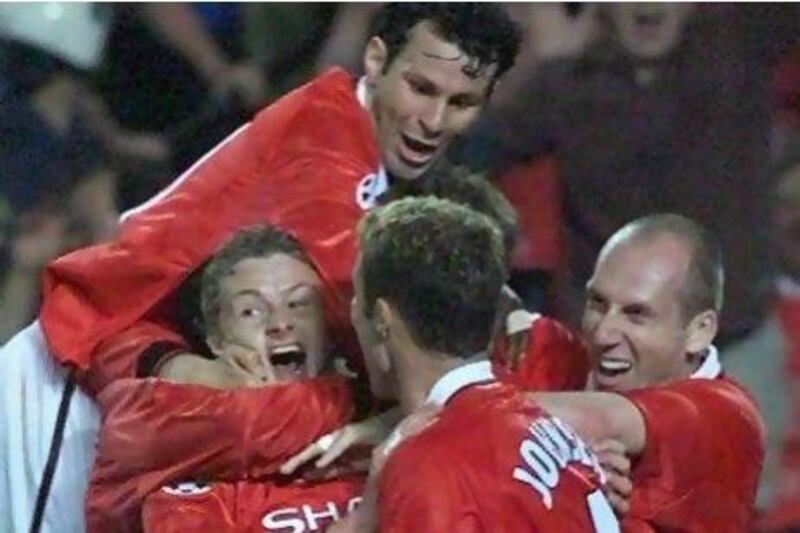Another season, another title for my old Manchester United teammate Ole Gunnar Solskjaer. He has been at the Norwegian club Molde for two seasons and has won the league both times.
Molde had never been champions before. It helps that he inherited a decent side with a wealthy owner and, with the greatest respect, it is Norway not the English Premier League, but Solskjaer has done really well.
I got on great with Solskjaer ever since his arrival in 1996. I never felt pressured knowing that he was waiting on the bench ready to replace me, but I never had him down as the type to manage either.
Some players seem set for it. They seem like natural leaders on the pitch and you assume they will carry that on when they stop playing.
Solskjaer wasn't one of them. He was quiet and private. I never heard him swear in six years, never heard him raise his voice or argue with anyone else.
The other players did not play pranks on him and certainly did not cut up his clothes. They were bad enough as they were - the Scandinavian players had the worst clobber.
Solskjaer was a real student of the game. He had plenty of time to study. Other players, me included, hated being named as a substitute. Sir Alex Ferguson once told me, "You are the worst sub ever, Cole."
He knew I wanted to start games and score goals, not sit on the bench. Solskjaer saw it differently. He would see it as a chance to learn.
It is really hard to come off the bench in a top level football match and fit in with the pace and momentum of the game. I struggled doing it, but Solskjaer did it naturally.
While I was sulking and watching the clock to see when I would get on the pitch, Solskjaer would study the game and see areas he could exploit. He would watch defenders and the pattern of play.
He would learn from what the coaches and manager were saying around him too.
Then he would go on the field to score, never more famously than the winner in the 1999 European Cup final. He really was a super-sub. He was also an excellent decision maker who would bide his time.
In 1998, a deal was done for him to join Tottenham Hotspur. He would have earned more money and played more games than at United. All he had to do was sign. But he didn't. He stayed where he was and ended up scoring in the European Cup final.
I felt I could relate to him. In 1998, his future was uncertain and so was mine. Had Patrick Kluivert joined United then I am sure I would have been sold. A year later United's forwards were being rated as the best in Europe. That shows how quickly things can change in football.
The end of Solskjaer's career was hampered by injury, yet once again he turned it to his advantage.
He was encouraged to coach at Old Trafford where he worked with very good players in an environment free from real pressure. No fans were on his back, no chairman telling him to sell his best players like you get in real management. The ideal scenario for learning the coaching ropes.
Ole has shown his intelligence by realising that he should not be in too much of hurry. He learned by coaching United's reserves before moving to Norway and he is learning again. He has been offered several roles in England which he has turned down, even though he went to Aston Villa for talks last year, but he knows he needs to make the right decision.
He also has the luxury of being able to speak to Ferguson for advice. And he appreciates that he is still learning as a manager and needs to be ready if he moves to a bigger club.
People are saying Solskjaer is a potential future Manchester United manager, but that is a long way off. Roy Keane, Bryan Robson and Steve Bruce were all said to be future United managers, but they have seen how tough management can be.
I do not think any of them will manage at Old Trafford.
The right job will come along which will suit Solskjaer's style and talent. And it could not happen to a nicer man.
Andrew Cole's column is written with the assistance of the European correspondent Andy Mitten.
Follow us
[ @SprtNationalUAE ]





